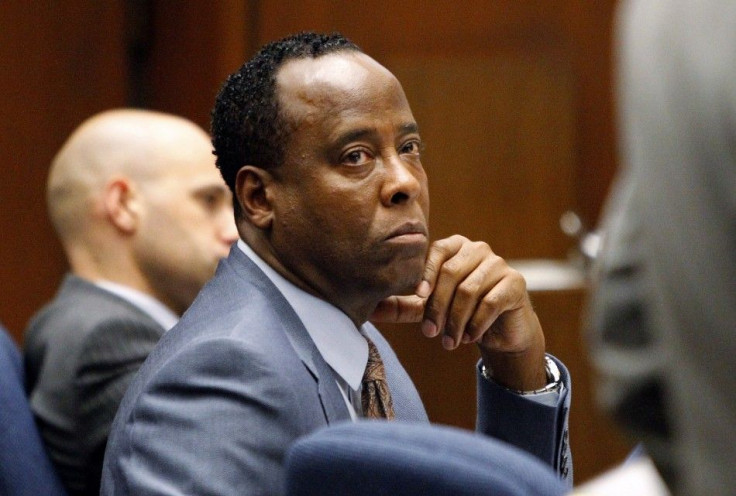Michael Jackson ‘Flatlined’ at Home, 'Clinically Dead’ on Arrival at Hospital

The doctor who pronounced Michael Jackson dead, at the Ronald Reagan UCLA Medical Center, testified Friday at a Los Angeles court that he was clinically dead on arrival. Dr. Richelle Cooper, the 13th and last witness for the first week of the involuntary manslaughter trial of Michael Jackson's physician, Dr. Conrad Murray, said Jackson didn't have a pulse when he arrived.
He was clinically dead, Dr. Richelle Cooper said. He did not have a pulse.
Prosecutors portray Murray, 58, as an incompetent doctor whose gross negligence in administering propofol -- a risky drug which requires close monitoring of patient in controlled medical settings -- led to Jackson's death in 2009. The defense attorneys claim that the pop star caused his own death by taking a drug overdose, including propofol, after his doctor left the room.
According to Cooper's testimony, Dr. Murray told her that was present when Jackson's breathing and heartbeat stopped. Murray also said that Jackson's cardiac arrest followed two doses of the sedative, Lorazepam; however, he didn't mention using any other drug, including propofol, Cooper testified.
The prosecutors accuse Murray of delaying the 911 call for a crucial 15 minutes after he found out that Jackson had stopped breathing. Murray claims there was no landline phone to call 911 and he couldn't use his cell phone, because he did not know the exact address. He claims to have run downstairs and yelled for help and asked a chef to get security to Jackson's room.
An L.A. County paramedic who reached Jackson's home within five minutes of the 911 call testified that the pop icon was flatlined and did not show any signs of life for the next 42 minutes when paramedics tried resuscitating him.
I felt he was dead, Paramedic Martin Blount said answering Deputy District Attorney Deborah Brazil.
Another paramedic in the emergency team, Richard Senneff testified that Murray talked about a dose of lorazepam, with no mention of propofol.
The prosecutors argue that Murray tried to mislead the paramedics and doctors by covering up the alleged misuse of propofol, which according to coroner's ruling, caused Jackson's death on June 25, 2009.
The court has ordered the lawyers involved in the trial to refrain from discussing the case with media or any outsider.
The court wants to make it clear that the attorneys for the parties in this case are ordered not to comment to anyone outside of their respective teams, either directly or indirectly, on any aspects on this case, Los Angeles County Superior Court Judge Michael Pastor said at the end of Friday's morning session, a CNN report said.
Jackson's chef Kai Chase, who was asked to get security, testified that she delayed calling the security and informed only Jackson's son, Prince Michael, about the situation.
Get help, get security, get Prince, Chase said Murray screamed as he ran down the staircase near kitchen nervous and frantic.
Chase walked to the dining room where 12-year-old Prince was playing and said Hurry, Dr. Murray needs you. There may be something wrong with your father.
But instead of informing the security, she went back to preparing lunch.
He's asking for help, he's asking for security, defense lawyer Michael Flanagan said during cross-examination of Chase. Did you think that a 12-year-old child was going to be able to assist this doctor with a problem with Michael?
I did what I was told and I went to get Prince, Chase answered.
Defense is trying to prove that Murray relied on the chef to call security, who apparently didn't think it was critical.
© Copyright IBTimes 2024. All rights reserved.






















